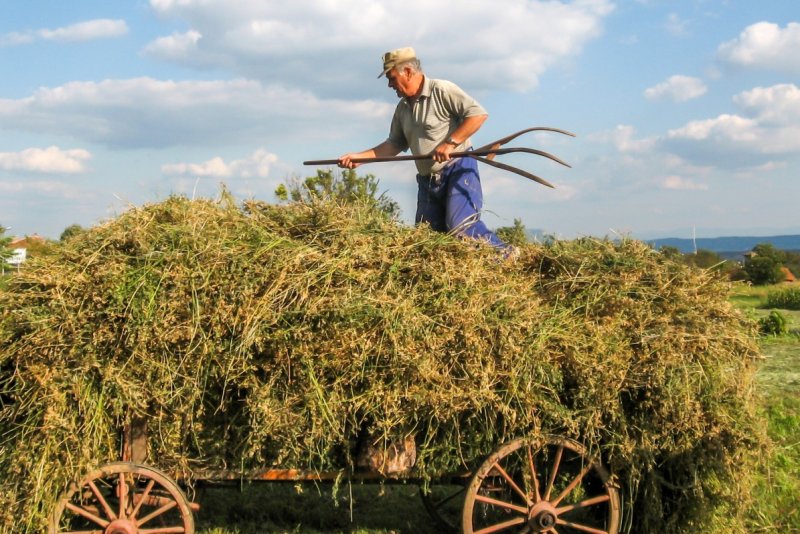1 of 3 | Numerous farm groups across the U.S. issued statements warning that high tariffs continue to block their access to the China market. Photo courtesy of pxhere
EVANSVILLE, Ind. Jan. 16 (UPI) -- Excitement grew high among America's farmers as President Donald Trump and Chinese Vice Premier Liu He signed the long-awaited phase one trade deal Wednesday. But as details emerged, their mood turned skeptical.
"It's reassuring to have an agreement signed," said Kyler Millershaski, a Kansas wheat farmer. "But I'll feel a lot better when grain and commodities start shipping."
The agreement, which was released shortly after the White House signing ceremony, includes a promise from China to buy $40 billion in U.S. agricultural products annually. That's nearly double what that nation had been buying before the trade war began in July.
But agricultural experts question how China can achieve such a lofty promise.
The nation has not agreed to lower any of the retaliatory tariffs on American farm goods. And the deal is carefully worded to say that agricultural purchases will be made "based on commercial considerations."
"The element of it being market-oriented is important," said Veronica Nigh, an economist with the American Farm Bureau Federation. "The tariffs on American products mean our prices are not competitive with those from competing countries. Until those tariffs are off, it will slow their ability to fulfill $40 billion in purchases."
Numerous farm groups across the country issued statements warning that -- despite the promised purchases -- high tariffs continue to block their access to the China market.
But hope is not lost, Nigh said.
China could lower tariffs at any time. And even if it does not, it could bring in American goods in other ways, such as giving rebates to Chinese importers or offering a tariff-free quota on certain items.
"When you look at what China imports from the world, they buy $120 billion in agricultural products annually," Nigh said. "So, they certainly have the capacity to buy $40 billion of products from the United States."
What agricultural products it will buy is anybody's guess.
The agreement lists oil seeds, meat, cereals, cotton and "all other agricultural products." It does not give any indication how much of any given product China intends to buy.
"I can see dramatic increase in lots of agricultural products," said Grant Kimberley, the senior director of market development for the Iowa Soybean Association. "But, for soybeans, I'm uncertain how we're going to get there."
America's soybean industry has been particularly hard hit by the trade war. Before it began, China was the leading buyer of American beans, importing about 30 percent of all the soy grown in the United States.
When the Trump administration levied billions of dollars in tariffs on Chinese goods in summer 2018, China responded with its own tariffs, many directed at agricultural goods like soybeans.
Its appetite for American soybeans plummeted. And, though the nation has made some sporadic purchases in the 18 months since the trade war began, the market has not recovered.
"It has kind of turned us into a residual supplier," Kimberley said.
China already has missed its window to buy the United States' 2019 soybean harvest in bulk and at a competitive price. Brazilian beans, which will be harvested in February, are about to flood the market. Those beans will be cheaper than America's soy -- even if the tariff on U.S. beans is removed.
With the tariffs in place, there is no contest.
The market seemed to understand the limits of the trade deal, Kimberley said. The March futures price for soybeans opened at $9.40 a bushel Wednesday, but by the end of the day, it fell to $9.28.
"The phase one deal is done, but now the question is will China actually buy more agricultural products -- and how much more?" said Burt Schlichter, senior market strategist at Daniels Trading, a brokerage firm in Chicago. "It was a situation where the market buys on rumors, sells on facts."















